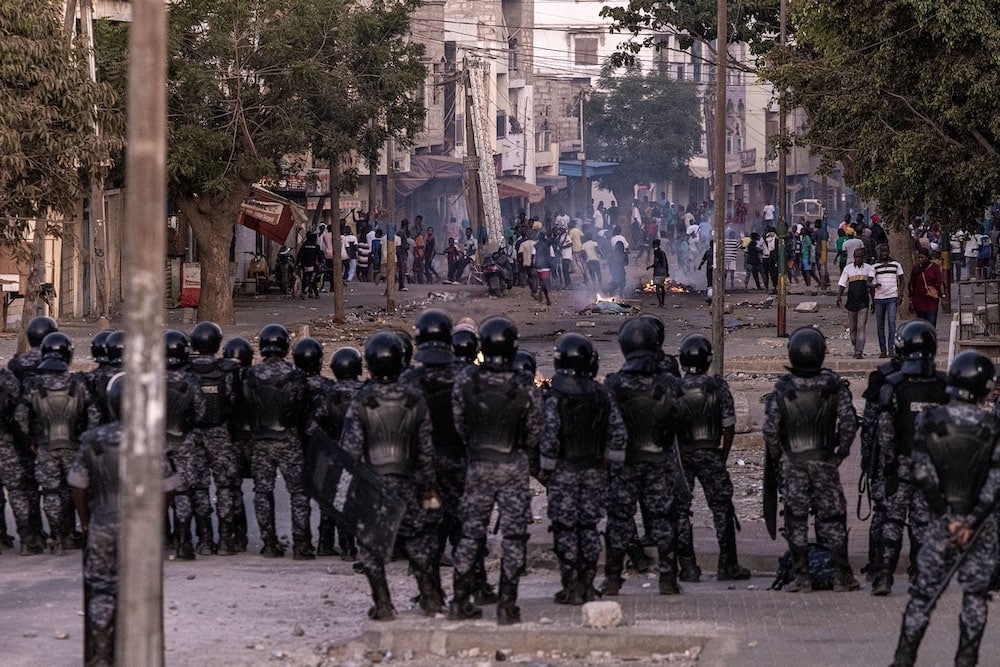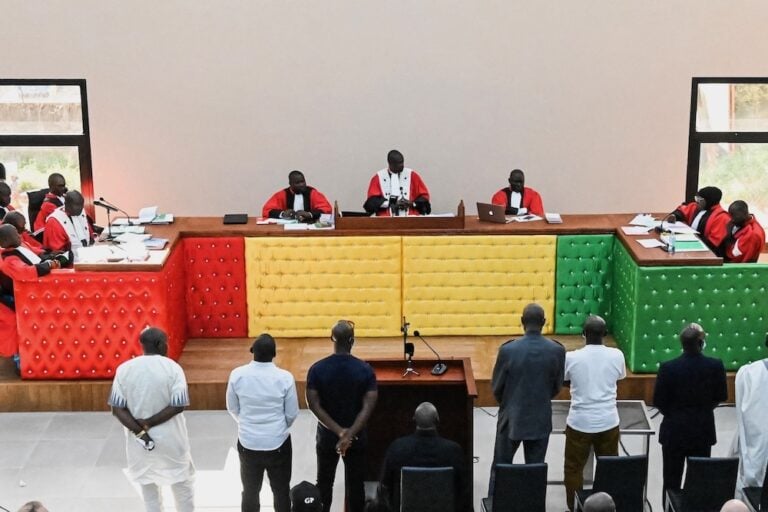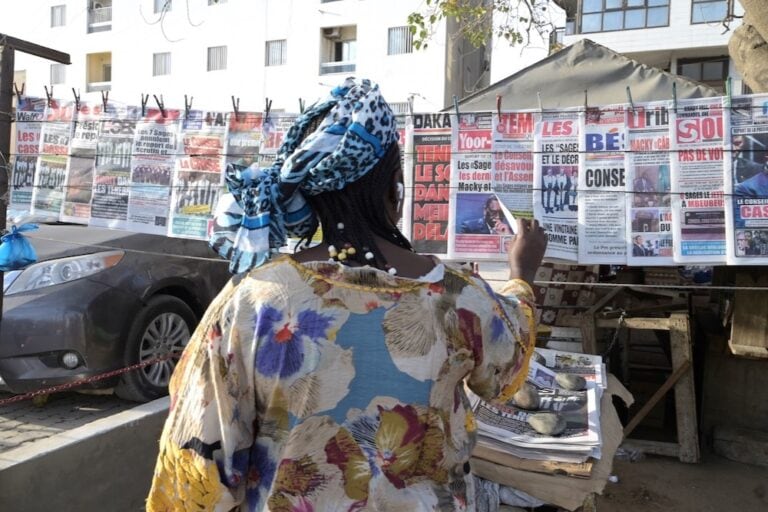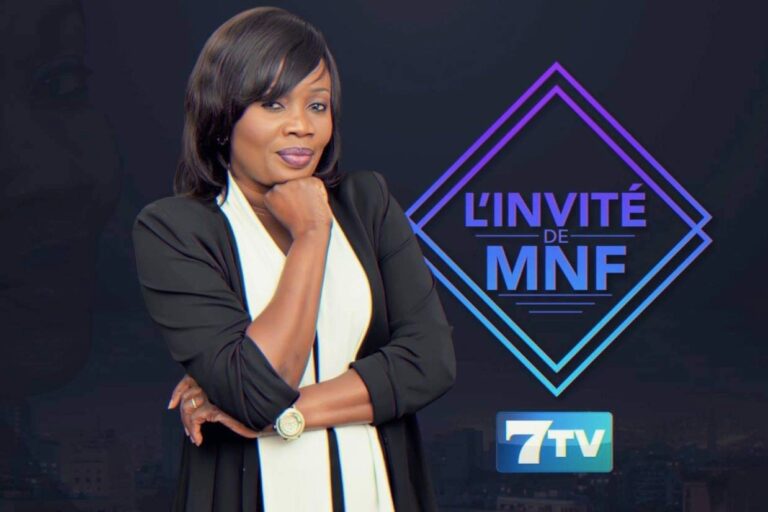The crackdown on the opposition, media, and civil society intensifies ahead of Senegal's polling day.
This statement was originally published on hrw.org on 22 January 2024.
Guarantee fundamental freedoms, end arbitrary detentions and prosecutions
- The authorities in Senegal have cracked down on the opposition, media, and civil society.
- President Macky Sall’s promise to hold free and fair elections is at odds with the reality that the authorities have been filling prisons for the last three years with hundreds of political opponents.
- The authorities should effectively investigate all security force violence, release people arbitrarily detained, and guarantee the rights to freedom of expression, association, and peaceful assembly.
The authorities in Senegal have cracked down on the opposition, media, and civil society, ahead of general elections scheduled for February 25, 2024, Human Rights Watch said today. The authorities should effectively investigate all violence by the security forces, release people arbitrarily detained, including on politically motivated grounds, and guarantee the rights to freedom of expression, association, and peaceful assembly, essential to genuinely free and fair elections.
A crackdown began in 2021 over court cases involving prominent opposition leader Ousmane Sonko and over concerns about whether President Macky Sall would run for a third term, but there has been a spate of arrests of political opposition figures and dissidents in recent months.
According to civil society groups and opposition parties, up to 1,000 opposition members and activists have been arrested across the country since March 2021. Seventy-nine people have submitted requests to the Constitutional Council to be presidential candidates, including Amadou Ba, Senegal’s current prime minister and member of the ruling coalition, and Sonko, a jailed opposition leader and head of the dissolved political party African Patriots of Senegal for Work, Ethics, and Fraternity (Patriotes africains du Sénégal pour le travail, l’éthique et la fraternité, PASTEF). Only 20 have survived the Council’s vetting process. Sonko’s candidacy was rejected on grounds that he was sentenced to 6 months in prison by the Senegalese supreme court for defamation against a minister. Sall is not running for a third term.
“President Macky Sall’s promise to hold free and fair elections is at odds with the reality that the authorities have been filling prisons for the last three years with hundreds of political opponents,” said Ilaria Allegrozzi, senior Sahel researcher at Human Rights Watch. “The authorities should ensure that all Senegalese are able to freely express their views and exercise their vote fairly and peacefully.”
Between November 2023 and January 2024, Human Rights Watch interviewed in person and by telephone 34 people, including 9 opposition party members, 13 members of Senegalese civil society groups, 6 journalists, 2 university professors, 3 Senegalese lawyers, and 3 relatives of activists. Human Rights Watch also reviewed reports by national and international media outlets, photographs showing one protester’s injuries as a result of torture in June 2023 and his medical records, and a video showing gendarmes torturing a protester, also in June.
On January 9, Human Rights Watch sent an email to Julien Ngane Ndour, director of the Justice Ministry’s Human Rights Division, sharing its findings and requesting responses to specific questions. Human Rights Watch did not receive a response.
Waves of arrests started in 2021 following violent protests linked to court cases involving Sonko, and over the prospect that President Macky Sall might run for a third term. Security forces have targeted leaders, members, and supporters of Sonko’s party. Sonko was most recently arrested on July 28 on charges of fomenting insurrection, undermining state security, creating serious political unrest, and criminal association, among others. Bassirou Diomaye Faye, PASTEF’s secretary general, has been in detention since April 14, facing similar charges connected to a message criticizing magistrates he posted on his Facebook page.
“Criticizing officials is not a crime and no one should face prison time for doing so,” said Faye’s lawyer. On July 31, Senegal’s interior minister announced the dissolution of PASTEF on the grounds that it had allegedly rallied supporters during violent protests in June 2023 and March 2021.
“Our leadership is in jail, our supporters are in jail, many of us are on provisional release or are monitored electronically like me,” said El Malick Ndiaye, head of communications for PASTEF, arrested on March 22 for allegedly spreading false news and acts likely to jeopardize public security. That day, he published a message on his Facebook page alleging that an individual in police uniform sprayed Sonko with an unknown substance. “The government is trivializing the practice of arrest and doing everything to silence us,” he said.
The authorities have used the judicial system to target political opponents and dissidents. Lawyers representing those arrested in connection with opposition-led protests expressed concerns over the lack of respect for due process rights of their clients, including trumped up charges, lack of evidence to substantiate charges, prolonged pretrial detention, and ill-treatment and torture in detention or upon arrest.
“The prosecutor wrongly codifies the offense in order to request an arrest warrant and rejects any request for provisional release of detainees,” said Moussa Sarr, a prominent human rights lawyer who is representing pro bono hundreds of detained protestors. “So it happens that people who participate in an unauthorized demonstration are not being prosecuted for participating in an unauthorized demonstration, but for criminal association. The offense charged is no longer the legal consequence of the acts committed.”
Human Rights Watch has previously documented security forces’ use of excessive force, including live ammunition and improper use of tear gas, to disperse thousands of protesters across the country in March 2021 and June 2023. At least 37 people have been killed during violent clashes since March 2021 and there has been no accountability. “Young people died, and their families are yet to see any justice done,” said Alioune Tine, a prominent Senegalese human rights activist and founder of the research organization AfrikaJom. “The failure by our authorities to bring to book errant security officers will only encourage them to continue.”
The March 2021 violent protests led Senegalese authorities, citing the need to protect public security, to restrict freedom of assembly by prohibiting public gatherings, meetings, and protests. On December 29, 2023, local authorities in the capital, Dakar, banned a December 30 meeting at which Sonko was to be nominated to run for president, citing a threat to public order.
“For two years authorities have rejected almost all requests from civil society organizations and political parties to demonstrate,” said Moundiaye Cissé, executive director of the civil society organization 3D. “The right to freedom of assembly is a cornerstone of democracy, we fought for it, it cannot be taken away from us.”
Some candidates have said they were prevented from collecting signatures, which are required to place their name on the ballot. On October 28, Khalifa Sall, leader of the Taxawu party and a presidential candidate, said the police stopped his 30-vehicle convoy for several hours, preventing it from entering the Fatick region, southeast of Dakar, where he was supposed to collect signatures. The police said that the convoy had not been authorized.
“We did not need any authorization,” said Moussa Taille, Taxawu’s spokesperson. “The law provides for any candidate to collect his sponsorships. Ahead of the vote, the government is trying to restrict the rights of opponents.”
Journalists said that since 2021, they have experienced increased pressure from government agents and security forces while doing their work, as well as arbitrary arrests and intimidation. Dozens of journalists have been arbitrarily arrested, threatened verbally, and physically assaulted. Media outlets have been suspended and the authorities have imposed arbitrary restrictions to mobile internet access and social media.
In a January 8 statement, the European Union announced that, at the invitation of Senegalese authorities, it will deploy an electoral observation mission to Senegal on February 25.
International human rights law, including regional law such as the African Charter on Human and Peoples’ Rights, prohibits arbitrary detention. Any charges authorities bring must be provided for in law, cover activity that is legitimate to sanction, and be supported by credible evidence that fits the offense. Those detained have a right to be informed of the grounds for their arrest, to challenge their detention before an independent and impartial judge, not to be arbitrarily denied bail, to have access to a lawyer and family members, and to have their case periodically reviewed. International human rights law also guarantees the right to freedom of assembly and expression and prohibits excessive use of force by law enforcement officials as well as detention in inhumane and degrading conditions.
“As Senegal heads to the polls, the stakes for its democracy are high,” Allegrozzi said. “Senegalese authorities should initiate impartial, independent, and effective investigations into all cases of use of force by security forces throughout the pre-election crisis and ensure that security forces respect the right to demonstrate peacefully.”
For detailed accounts of the abuses and other details, please refer to HRW’s press release



